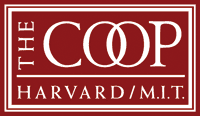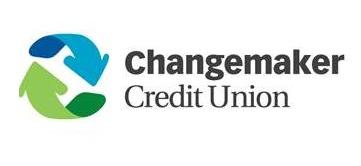As well as teaching and researching about social enterprise and cooperatives, it is important that universities explore ways of practicing the social economy. In the case of cooperatives, these lead to sharing of benefits among their members (students and staff) and the development of democratic decision-making and governance. Other forms of social enterprise can lead to more environmentally and/or socially just and sustainable outcomes. Here are some examples of the social economy operating on university campuses with a fuller explanation further down:
- Cooperative, student-owned businesses on campus – to cut prices/share profits with the main stakeholders, i.e. students and staff
- Credit union for students and staff on campus – to promote a savings culture in an ethical bank where members share the profits
- Social enterprise incubators on university campuses – to support students in developing their ideas for viable social enterprises
- Selling Fair Trade or other ethically sourced food in the campus cafes – to know that what we eat does not leave the bitter taste of exploitation of workers
- Recycling of student furniture – to ensure affordable prices, sustainability and training in furniture restoration for local people
- Student residence cooperatives – to ensure a fair price for accommodation and democratic decision making in the residence
1. Cooperative shops on campus, e.g. The COOP at Harvard/Massachusetts Institute of Technology, USA
 The COOP serves the Harvard and MIT communities as a cooperative by providing quality products and services: textbooks; college logo mechandise; framing of diplomas; rental of graduation gowns; dorm room necessities. It is one of the US’s largest campus stores. It is open to all, and students, alumni, staff and other people affiliated to Harvard/MIT can become members for $1. Members previously received a share of the profits each year. As of July 2014 members will receive a 10% discount on all purchases, rather than receiving a share of the profits at the end of the year.
The COOP serves the Harvard and MIT communities as a cooperative by providing quality products and services: textbooks; college logo mechandise; framing of diplomas; rental of graduation gowns; dorm room necessities. It is one of the US’s largest campus stores. It is open to all, and students, alumni, staff and other people affiliated to Harvard/MIT can become members for $1. Members previously received a share of the profits each year. As of July 2014 members will receive a 10% discount on all purchases, rather than receiving a share of the profits at the end of the year.
2. Credit unions on campus, e.g. the Changemaker Credit Union at University of Northampton, UK
Credit Unions are social enterprise mutual financial organisations set up by members to benefit their community. Members of a credit union save in a common fund. This fund is used to make low interest loans to the credit union members. All interest on loans repayments is reinvested in the credit union and nothing leaves the community. Credit Unions also promote financial education and a culture of saving and responsible borrowing. Because the credit union is not-for-profit, it is able to offer its members higher deposit rates on their savings and lower lending rates on their loans than most banks. It is often a small organization, so the customer service is more personalized, giving members the feeling of a community bank.

The Changemaker Credit Union is a joint initiative between the University of Northampton and Northamptonshire Credit Union. It provides innovative financial services package to all students and staff of the university.
Students, alumni and staff of the University of Northampton can become members of the Changemaker Credit Union. By joining the Changemaker Credit Union members will be supporting a local and ethical savings and loan scheme that is owned and managed by students for the benefit of all members.
3. Social enterprise incubators on campus, e.g. The Phoenix Centre, York St John University, UK
Enterprise incubators can include commercial and social enterprises. They support start up enterprises with office space, mentoring and practical advice. The Phoenix at York St John University currently has 4 social enterprises:
Inspired Youth: “an award-winning not-for-profit Social Enterprise who embrace the creativity and vibrancy of digital video production, arts, media and participative inclusion techniques to inform, challenge, educate and inspire. Our drive is to make an ongoing positive impact in the community with a particular focus on engaging and empowering people who are considered by some as hard to reach”.
here:now dementia ltd: “a social enterprise on a mission to rebrand dementia”.
Kindlewoods: “a vibrant social enterprise that leads outdoor programmes with schools, groups and families in York and the surrounding area. We are passionate about two things; nature – and our ability to live sustainably in it, and people – feeling good, confident, happy and fulfilled”.
Caroline’s Rainbow Foundation: is a registered UK charity working to raise awareness of the importance of safe travel to young people, whether they are going abroad for independent travel, gap year placements, organised tours or simply thinking about visiting a different country
4. Selling Fair Trade or other ethically sourced food in the campus cafes, e.g. the University of Melbourne, Australia
“The University of Melbourne comprises about 58,000 students and staff. They believe that the consumer choices they make on campus matter. By using fair trade options, they help reduce poverty and make a real difference to the lives of farmers and to communities in the developing world. Every choice matters and a community of 58,000 consumers, could make a world of difference.
A fair trade university supports and promotes fair trade products on campus. At Melbourne, students and staff enjoy greater choice through fair trade options – for coffee, tea, chocolate, and other products – for those who prefer to buy or consume fair trade products.
As part of their fair trade commitment, the University:
- Stocks fair trade tea and coffee in at least 50% of kitchenettes across campus
- Serves fair trade tea and coffee in Council and Senior Executive meetings
- Encourages other cafes and outlets to offer fair trade options, and
- Over time, is committed to looking at fair trade alternatives for products such as clothing and sports equipment
5. Recycling of student furniture, e.g. the York Community Furniture Store and York St John University, UK
The York Community Furniture Store (CFS), a registered charity and limited company. The CFS collects unwanted furniture from student residences at the end of the year, restores it as necessary and sells it at reasonable prices, giving further discounts to people out of work or on low incomes. They also provide work experience in restoring the furniture at the companion store in Selby. From their website:
Last year we saved more than 160 metric tonnes from being added to the landfill mountain and helped several thousand people furnish their homes. The more donors and customers we have, the greater the recycling we can achieve.
This contact is a win-win situation. CFS will collect unwanted student furniture at the end of the academic year. Previously, this had gone into a skip and been thrown away at the expense of the University and unnecessarily high environmental cost. Perfectly good furniture can now be recycled instead of discarded; people on low incomes (including students) get access to furniture at reasonable prices; and the CFS gets more business to expand its socially and environmentally-driven aims.
6. Student residence cooperatives, e.g. the Edinburgh Student Housing Cooperative, Scotland
Edinburgh Student Housing Cooperative Ltd will be owned and run democratically by the students living in the co-operative. This means contributing to the community and helping with organisation. When accepted as a member, students join the co-operative for £1 and have an equal share in the co-operative and an equal say on how it is run.
Opening in September 2014, there will be regular meetings where members decide on the direction and policies of the housing co-operative as well as specific roles for members to carry out. These may include roles like waste reduction, workshop coordinators, financial management, or a women’s officer. There will also be task groups to carry out these jobs. As part of the rent, members will contribute work hours to maintaining and running the co-operative.
Thank you for these 6 points above. I am a researcher focusing on the Social Economy, but I am in a University that does not know the concept at all. I can use this in some conversation with university officials.
I will try to follow you on Facebook…